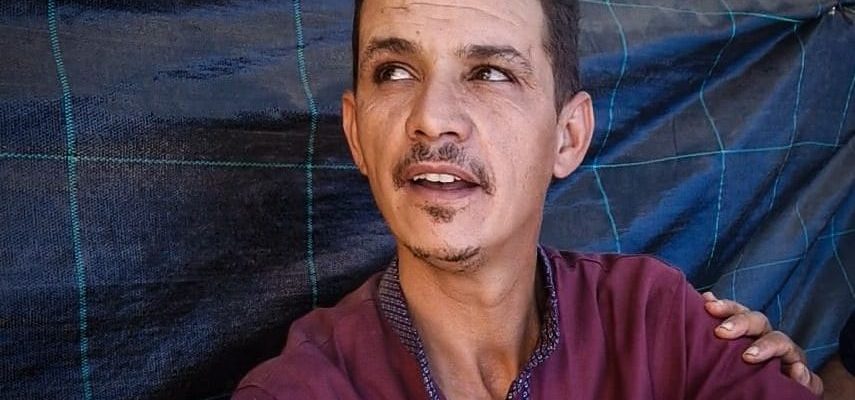From our special envoy to Morocco,
Climbing to Tizirt proved particularly complicated, even a week after the earthquake. This small village of 200 inhabitants is located at the end of the track which leaves Tirkmit to reach Adebdi, where 20 minutes was Friday. The first seven kilometers can be done on foot, on the back of a mule or by moped, avoiding rocks, cracks and other scree that clutter the road. For the rest of the journey, approximately three kilometers, it is impossible to continue on a moped, the mules and men already finding it difficult to climb the path. A few hundred meters before entering the village, we come across three men who, using their hands, are busy clearing the path. Their task is tiring, tedious and almost futile because it is so immense. But they keep smiling.
Built on the side of a mountain, Tizirt today looks more like a rocky scree than a village. The traditional houses with mud walls are no more. And some more recent buildings, like the school or the mosque, remain standing but shaky. In the middle of this pile of ruins, the same blue tents that we see everywhere, provided by the Kingdom. It is near one of them that we meet Omar, a 35-year-old father. “The evening of the earthquake, we were already sleeping since the villagers go to bed early here. Suddenly it shook, people started screaming and the houses fell one after the other,” he remembers. Although he managed to get out of his house with his family, this was not the case for everyone: “Many understood that it was an earthquake, but others could not imagine what it was happening and they were stuck in their homes,” Omar continues. These are the six dead, four women and two men, and the four injured in the village. The thirty-year-old also tells us that the residents had to manage on their own to get the victims out of the rubble.
“It’s true, we lost loved ones and our homes, but it’s only human and material. It’s up to us to build our future.”
In the days that followed, local authorities and associations managed to deliver aid to the victims of Tizirt. They buried their dead, bandaged their wounds and moved on with their lives. The women cook over wood fires on the ground and wash clothes the old-fashioned way, in a basin. The men, for their part, set up the tents, arrange the living spaces and undertake the dangerous journey to collect food. “What we want now is for the road to be clear so that help can arrive. We also need help to rebuild because the winter is harsh in the mountains,” asks the father.
Incredible as it may seem, Omar believes that the village lacks nothing today. And for the future, he admits to being optimistic: “This crisis is terrible, but the king of Morocco himself assured that all the villagers who were victims of this catastrophe would be helped.” A confidence in one’s sovereign that we did not necessarily see in all the people we met. “It’s true, we lost loved ones and our homes, but it’s only human and material,” explains Omar. It’s up to us to build our future.”
So yes, faces are smiling, children are having fun in the ruins and there is always tea on the fire. But the tragedy, so close, does not intend to be forgotten. An aftershock of 3.2 is felt when we turn back. On the side of the opposite mountain, a few rocks roll down the slope. This time, there was no village underneath.

